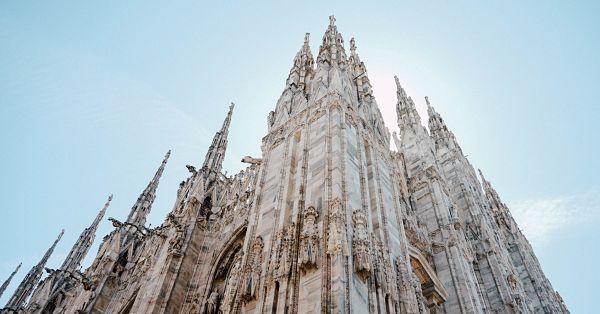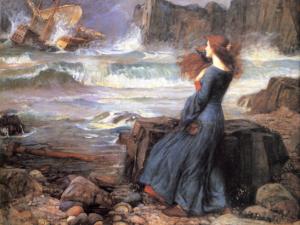 Reason is a harsh corrective to fantasies and dreams. Some dreams cannot be. No matter how much we might hope that death is an exit from all our problems, reason and human experience suggests death is no escape. Instead, dying gives way to life. Life (as the Phaedo demonstrates) never ends.
Reason is a harsh corrective to fantasies and dreams. Some dreams cannot be. No matter how much we might hope that death is an exit from all our problems, reason and human experience suggests death is no escape. Instead, dying gives way to life. Life (as the Phaedo demonstrates) never ends.
We must live by reason to be human, but not reason alone. I follow the directions of my GPS (GPS saves!), but I don’t drive for my GPS. Instead, I drive to reach my goal and the goal is happiness.
Happiness comes when beauty appears and fills my heart with longing. This longing for beauty heads me toward the beloved and if I pursue what is beautiful to the end then I will find goodness. Complete goodness, the very Good, is part of the nature of God.
God is utterly beautiful.
So how can beauty deceive us, because isn’t it obvious beauty does deceive us? Aren’t there things that seem beautiful, but are frauds? When I first put on glasses, after a childhood of near sightedness, I saw that white wall in my bedroom was not so white. My bad vision had tricked me. The wall needed to be painted. When I think I see beauty, I must hesitate. Beauty never cheats me, but sometimes rouge covers up a rogue!
If that were not hard enough, we also see beauty and misunderstand how best to love beauty. We pretend every beautiful body should be ours and so turn people into objects. We assume every feeling of love is a prelude to intimacy with us . . . as if we could possess the beauty of the stars. We love the stars and then claim they must be ours.
This is foolish.
So beauty, and the love that beauty stirs, is not enough. We must know what to do with the feelings. The love is never bad, real beauty is always good, but my response can be stupid. Love is love, but the way I love might be wrong. This is why people have thought so hard about love and how to respond to beauty and why God gave us more guidance here than in most areas.
How can I love the beloved?
The Confessor said it best:
83. The beautiful is identical with the good, for all things seek the beautiful and the good at every opportunity, and there is no being which does not participate in them. They extend to all that is, being what is truly admirable, sought for, desired, pleasing, chosen and loved. Observe how the divine force of love — the erotic power pre-existing in the good — has given birth to the same blessed force within us, through which we long for the beautiful and the good in accordance with the words, ‘I became a lover of her beauty’ (Wisdom 8:2), and ‘Love her and she will sustain you; fortify her and she will exalt you’ (Proverbs 4:6, 8).
———————
Philokalia, Volume 2, page 280
Κεφάλαια διάφορα Θεολογικά τε και Οικονομικά και περί Αρετής και Κακίας, ΕΚΑΤΟΝΤΑΣ ΠΕΜΠΤΗ
πγ΄. Ταὐτόν ἐστιν τῷ ἀγαθῷ τό καλόν, ὅτι τοῦ καλοῦ καί ἀγαθοῦ κατά πᾶσαν αἰτίαν πάντα ἐφίεται, καί οὐκ ἔστι τῶν ὄντων, ὅ μή μετέχει τοῦ καλοῦ καί ἀγαθοῦ. Πᾶσι γάρ ἐστι τό καλόν καί ἀγαθόν, ὡς ὄντως ἀγαστόν, ἐφετόν καί ἐραστόν καί ἀρεστόν καί αἱρετόν καί ἀγαπητόν. Σημείωσαι δέ πῶς ὁ θεῖος ἔρως ἐν τῷ ἀγαθῷ προϋπάρχων, ἔτεκε τόν ἐν ἡμῖν ἀγαθόν ἔρωτα, δι᾿ οὗ τοῦ καλοῦ καί ἀγαθοῦ ἐφιέμεθα, κατά τόν εἰπόντα, Ἐραστής ἐγενόμην τοῦ κάλλους αὐτῆς. Καί, Ἐράσθητι αὐτῆς, καί τηρήσει σε· περιχαράκωσον αὐτήν, καί ὑψώσει σε.
















